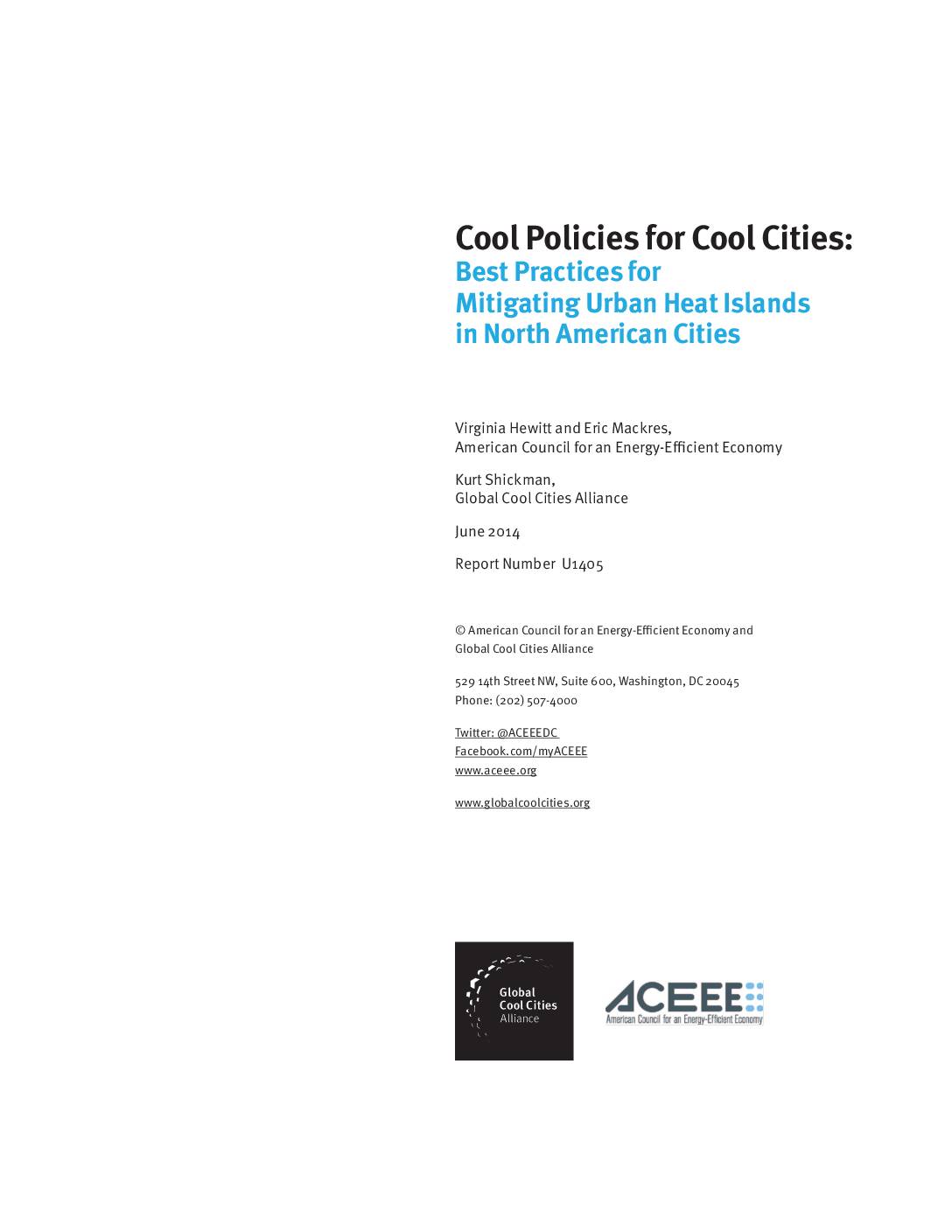The urban heat island (UHI) effect is a global phenomenon in which dark, impermeable surfaces and concentrated human activity cause urban temperatures to be several degrees hotter than those in surrounding areas. Urban heat islands impose negative effects on local and global public health, air quality, energy consumption, resilience, quality of life, stormwater management, and environmental justice. Cities across North America experience and mitigate the impacts of UHIs. We conducted a review of the UHI mitigation activities of 26 North American cities and distributed a questionnaire to local government contacts to gather information.
This report profiles the causes, impacts, strategies, and social and institutional context of city action in the sampled cities. We found that heat waves and other disasters are motivating cities to implement heat-mitigation strategies. In planning, cities embed their mitigation strategies and actions in a broad set of documents and activities. Most cities set UHI-related goals, implement voluntary programs and mandatory policies to reduce excess heat, and track progress towards those goals. All sampled cities developed one or more strategies that include UHI mitigation and 25 adopted at least one policy. Overall, we found that more can be done in every city. Cities should develop strategies, set goals, and track progress. Local governments should establish policies and lead by example to catalyze community action. Cities should engage institutions and citizens to build public support. Finally, cities should engage with state, regional, and national levels of government to encourage cool standards.
Share this

Sectors: Buildings, Cities, Cross cutting, Renewables
Country / Region: Northern America, United States
Tags: air conditioning, best practice, cities, climate change mitigation, domestic heating, energy, health sector, heating, human health, impacts on systems and sectors, justice, quality of life, space cooling, temperature, urbanKnowledge Object: Publication / Report
Published by: ACEEE
Publishing year: 2014
Author: Virginia Hewitt, Eric Mackres, Kurt Shickman
